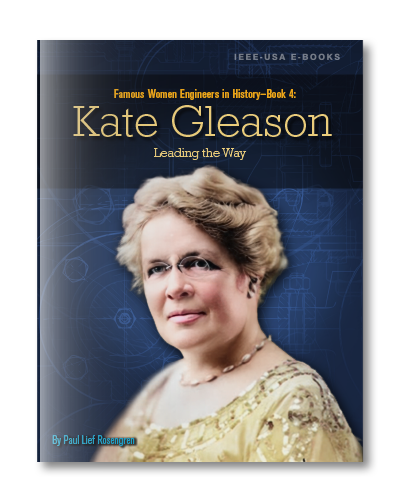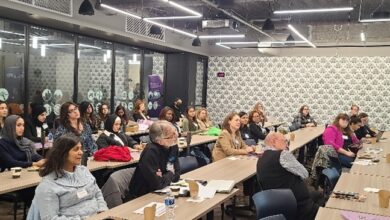

Famous Women Engineers in History – Book 4: Kate Gleason – Leading the Way
FREE to IEEE Members
Non-Members: $2.99
Kate Gleason was not your stereotypical woman of the late 1800s and early 1900s. She felt as comfortable in overalls as fancy dresses and hats; became the first woman enrolled in Cornell University’s Engineering program; was chosen as the first woman member of both the American Society of Mechanical Engineers and the American Concrete Institute; and made a name for herself in sales, business and engineering.
Kate Gleason: Leading the Way is the fourth book in IEEE-USA’s award-winning Famous Women Engineers in History Series. All four books are free for IEEE members from the IEEE-USA Online Shop. Non-members pay $2.99 per book.
Gleason counted Susan B. Anthony (who lauded her success in business, even while urging her to dress more femininely); Henry Leland (who urged her family to fight the “Russianization” of America); Lillian Gilbreth (in her own right, an example for woman seeking success in engineering and business); and Henry Ford (who falsely gave her credit for innovation in gear technology) as friends.
Gleason started working in her father’s tool company at age 11, was company bookkeeper at 14, and treasurer and corporate secretary at 25. She was also the chief company salesperson in both the United States and Europe (the Gleason Tool Company was one of the first American businesses to develop a sizable European customer base); and Gleason played a role in fostering the growth of the American auto industry. Today, The Gleason Corporation remains a leader in the gear and tools industry — with manufacturing plants in the United States, Britain, India, China, Switzerland, and Germany.
After a confrontation with her brother about who should make major decisions, Gleason left the company and became the receiver at another (bankrupt) tool company — returning it to profitability in three years; filled in as president of a bank (when the current president was called to fight in WWI); and helped design one of the first planned communities (houses all made of concrete). Her concrete homes still stand in Rochester, New York, fulfilling her pledge that the homes were “built to last 100 years.”
Following WWI, Gleason helped pay to rebuild a French town (and its turkey stock). She died a rich woman, and gave generously to her hometown of Rochester. Gleason also gave a sizeable gift to the Rochester Institute of Technology; in turn, RIT renamed it engineering college in 1998, The Kate Gleason School of Engineering. In 2003, RIT went on to establish The Kate Gleason Endowed Chair. At the renaming of the engineering school in 1998, RIT President Albert Simone said, “Kate Gleason was a remarkable woman, an inspiration. She is an example of determination, hard work, and the creative spirit RIT would like to instill in all of our students, male or female.”
The first two books in the Famous Women in Engineering History Series (Hedy Lemarr: Inventor Extraordinaire and Hollywood Star and Edith Clarke, Trailblazer in Electrical EngineeringIEEE-USA Releases Second E-Book in Famous Women Engineers in History Series — On Edith Clarke) received Gold Medal Muse Awards for ”concepts, ideas or designs that light a fire in others to strive further.” The third book in the series, Lillian Gilbreth, Transforming Work, dives into the work and life of Lillian Gilbreth, loosely chronicled in the Cheaper by the Dozen books and movies (written by two of her children).
IEEE-USA Publishing Manager, and Editor of the series, Georgia C. Stelluto, explains that the Famous Women in History Series features women who “opened the way for others in engineering through their courage, creativity, perseverance and achievement. The long list of role models is a reservoir of inspiration.”






